|
photo courtesy of Vassar College Library special collections Does Rachel’s award-winning Hitty from 1930 still stand up in 2022? Yes and no.
Over the last year the American Library Association has been celebrating 100 years of the Newbery Award, which began its run in 1922. In 1930, Rachel Field was the first woman to receive the award with her charming book about a tiny wooden doll’s century of adventures, Hitty: Her First Hundred Years. I’m sharing here some fabulous photos of Rachel and Hitty – who was a real doll that Rachel and her illustrator bought in New York City – on their historic cross-country flight to California where Rachel would receive the Newbery. But is this book too dated to be read by today’s children? Fans of Hitty – both book and doll – were an essential part of my 9-year journey to rediscover the life of Rachel Field, whose abandoned island home became mine in 1994. As I near the one-year anniversary of my own book about Rachel’s life story, The Field House, I’m moved to honor these two centennials – Hitty’s 100 years, which still entertains readers today, and 100 years of the Newbery Award. Both histories have snags. Some of the older Newbery winners are deemed inappropriate or offensive for contemporary readers. The ALA hosted a recent webinar about this very topic. What do we do with award-winning books from history that no longer meet our standards of social justice? How can the Newbery Award selection process repair its history of bias and exclusion? What about Hitty? Re-reading Hitty’s story for the first time in a decade, I do find myself cringing at some of Rachel Field’s vocabulary and her treatments of non-white, non-privileged, or otherwise unfamiliar populations. Like many books of her time, Rachel’s Hitty caters to the predominantly white Christian populace who were her presumed readers. On the other hand, during Hitty’s exciting adventures around world history from the early 1800s to 1930, the narration suggests an inclination towards tolerance. It helps that the book’s narrator is the doll, Hitty, whom we might forgive more easily than a human narrator for her ignorance. Hitty may be elitist and judgmental, but she bends towards open-heartedness. She grows. I can’t help liking her. Hitty finds the good in all manner of people and situations, and I like to think that if her next hundred years were recounted we’d see Hitty grow in depth and perspective, regretting the narrow-mindedness of her early years. Hitty’s story can be instructive in many ways, in addition to being entertaining. There is a wealth of vivid description: the state of Maine, whaling ships, the evolution of fashion, transportation, and domestic life; and the timeless struggles of children navigating the pull between obedience and desire. In conjunction with education and discussion about the subtle and overt systems of racism and exclusion in literature, I believe we still have something to gain in reading Hitty’s story.
0 Comments
Today was a wide awake, wake-up day. They’re the best, and they don’t happen very often. I am not a morning person, and I love the luxury of a long, lingering lounge in bed after awaking, maybe even with a few extra dozings. But sometimes there are days like today when the sun tilts into my bedroom window, the air feels filled with promise, birds are singing, beckoning, and I am fully awake. Who cares if it's 10 degrees outside? What I most want to do is to get up and meet the day. That reminds me. I’ve been meaning to write about a game called “The Best Thing.” If you’re with a group and don’t have board games available, all you need are paper and pencils. Everyone writes 4-5 things on separate scraps of paper. Each entry must fit the description of something you’d call “the best!” Coffee is the best! A comfortable old cashmere sweater is the best! Ben and Jerry’s Oat of This Swirled ice cream, a baby sleeping on your chest, a dog’s velvety ears, or a sunny morning when you awaken with all your being in synch with the sunshine. To play, everyone throws their folded papers into a bowl, then you mix them up and pull them out, two by two. Each random pairing goes into the outermost tier of a tourney bracket. Your outer tier can be sixteen or thirty-two or sixty-four, depending on how much time you want this game to take. The “competition” consists of your group voting on the winner of each paired match-up. Which is best – fresh spring strawberries off the vine, or a big tax refund? In order to “win” and move on to the next level of the bracket, you have to gain consensus (some say unanimity, but that would be a game-ender in an opinionated group). Your tournament will lead you to the elite 8, the final four, the championship contenders, and one final winner. It is an excellent game for a dreary winter weekend. You can leave the game and come back to it, it’s more collaborative than competitive (though persuasiveness can be an asset, “Come on! Can’t you just smell that bacon sizzling?” “Yes, but coffee is there for you every day.”), and it focuses everyone on all those things in life that make us happy. We need more of that. Speaking of the best thing, one of my favorites is this picture of my granddaughter in pink tulle by the sea. It speaks volumes to me about independence, discovery, fresh air, forward movement, possibility, timelessness, femininity and power. It is the best! Think about it. Why I love February:
I missed posting on 2/2/22, but I did get to write that cool date on one check. Yes, I still write checks by hand. I like feeling obliged to put deliberate time and thought into spending. There’s a chance to rethink your decision, change the number, tear the thing up. Impulse buying over the airwaves has become way too easy, “one-click purchase!” -- but I digress. Today was a snow day around here. I still love snow days, opportunities for leisurely digression. February, as a month, gets a bad rap, something to flee. For me, it’s the best of winter. The snows of March (and even April, here in central Maine) lose some of their enchantment. By then I’m feeling restless for spring. This early February snow is blustery and blissful. For those of you who get my newsletter, some of the list below will look familiar, but February’s charms deserve reiteration (btw – I’d love to add you to my mailing list! Newsletters come ~4 times a year, or max 1/month if cool things are happening). If February is getting you down, consider these benefits:
May you all find your best Februarys. **Robin A slump often assails me at year’s end. Could be the post-holiday emotional hangover, or that lost feeling of not knowing - “what happens now?” - as a year of uncertainty, once again, looms large. I almost skipped the whole ritual of choosing a single word to be my guide-post for the coming year. Whatever, I thought. Who cares? I’m tired.
Ah. That is a problem. Not caring is exactly what the world does not need right now. So, after considering GROW, LEARN, and GIVE, I settled on CARE. The more active verbs stressed me out. I think I’m burned out, and I’m pretty sure I’m not alone. Besides, it’s too easy to GIVE without caring, to GROW and LEARN in an isolate way. It’s time we start thinking communally. Global climate change, the collapse of democracy, factionalism, widespread distrust – it’s overwhelming. If the Earth is our home, I guiltily find myself trying to slip out of the living room into my own privileged space, and shut the door. What can I do? How can I assure a secure future for my whole family - my sleeping granddaughter and millions more little people just arriving into the world? Well, I can care. I can pay attention, listen, exercise compassion, and try to help. That’s caring. Maybe my effect will be small, but I’d like to discover what is in my power and apply it. I don’t like not-caring. The world will collapse with all the not-caring that’s going around, the blind denial, the insularity. We are on one planet, all of us. We share this home. Everything we do affects all of us. Time to care. At a small family gathering near Thanksgiving we went around the dinner table saying what we’re thankful for. I was charmed by my husband’s unexpected contribution:
“I’m thankful for the Elsa dress,” he said. I laughed, but the idea stuck with me. For those uninitiated into the phenomenon of Frozen, Elsa is the blue-gowned heroine of the animated Disney film set in a mythical Scandinavian landscape. After seeing the movie in bits and pieces over time, our granddaughter became utterly enraptured by Elsa, by her showstopper theme-song, “Let it Go” (belted out by the amazing Idina Menzel), and most predominantly, by the Elsa dress costume that her parents got her for Halloween. For a while, Fiona’s mom and dad tried the out-of-sight out-of-mind method of weaning their daughter off the dress. No way. She was not going to let it go. Who knew that a not-quite two-year-old could sustain that kind of focus over days? On a Grammie visit in early November, I tiptoed into Fiona’s room at the end of naptime. Bleary-eyed, red-cheeked, raising her head from the stuffed pig that had been her pillow, her first words came as a query: “Elsa dress?” she asked hopefully. “The Elsa dress is in the laundry.” (I’d been primed with this response) “Mommy clean it?” “Maybe later, Honey.” “Elsa dress hiding.” “Yes, maybe it’s hiding again.” At an outdoor celebration of Fiona’s birthday in mid-November, she wore the Elsa dress over her clothes. She wore it to daycare, the store, anywhere she could. By Thanksgiving it seems her parents had given up resisting. She’d worn it every day for a week and clutched it to her when it was off, like a magic totem. She regularly requests Elsa’s famous song while she’s wearing the dress, then runs in grand circles, waving her wand, tiara sparkling, singing “Wet it go, wet it go…hold it back any-mo…” “It’s like she magically transforms into a princess when she puts it on,” said Fiona’s mom, who can’t help smiling every time. Jonathan didn’t explain his gratitude for the Elsa dress, except to say that it makes him happy. I’ll venture some further ideas about where that happiness comes from. Try to imagine that kind of total immersion in joy. The fertile mind of a tiny new person so enchanted floods the heart with delight. Magic is happening, before your eyes, the kind we can barely remember through the fog of adult eyes. It is why I revere childhood. The ability of young developing minds to explore beyond the boundaries of rational barriers reminds us of possibility, hopefulness, unrestrained joy in being. Yes, yes, it’s also buying into a capitalist marketing scheme run by the mega-corporation of Disney. I don’t mind. For whatever reason, the piquing of Fiona’s youthful imagination summons an enchantress from her pure heart. She transforms the grown-ups in her sphere, elevates them with a spell of celebratory pixie dust. I’ll take it. Kudos to my husband for naming it – I give thanks for the Elsa dress. After the exciting discovery that And Now Tomorrow was the FIRST EVER #1 New York Times Bestseller on the very first NYT bestseller list in 1942, I decided it was time to re-read Rachel Field's last novel. It had been years since I read it cover to cover. I'm happy to report that the third time through was even better than the first two, and it's only 99 cents on Kindle right now - so seize the opportunity! Admittedly, I'm biased, but that's only partially responsible for my enthusiasm.
Yes, there are parallels between the book and Rachel's life that I did not remember. The first, intense love affair in the protagonist's life spans the exact years of Rachel's passion for Lyle Saxon - 1928 to the early 1930s. Protagonist Emily Blair's experience of love's power to consume and humble is echoed, sometimes word for word, in Rachel's real life letters to Lyle. The day trip to a historic house that Emily and her beloved Harry undertake in the book duplicates Rachel and Lyle's visit to the old General Cowles house in Farmington Connecticut. The first encounter, flooded with the flush of love, is later recalled in an ache of longing to recover a love diminished. There are many more such scenes, shifts, and revelations that track with Rachel's love, heartbreak, and return to a more peaceful, if slightly jaded self. And Now Tomorrow is further complicated by sibling rivalry and the tragedy of meningitis-induced deafness, but the book is much more than a beautifully written, complex tale of romantic entanglements. Beyond that, there is a fascinating and humanizing exploration of the trials of the early 1930s labor movement, the clash between traditional corporations and unionizers. These elements of historic fiction give it even greater weight. And Now Tomorrow solidifies Rachel Field's prowess as a novelist and emphasizes the tragedy of her loss. How many more extraordinary works would have come from her hand if she hadn't died so suddenly and so young? We'll never know, and we are the poorer for it. GUESS WHO was #1 on the first NY Times Bestseller List?! (fun fact, especially for Robin)10/29/2021 On Sunday, October 24th, 2021, the 125th anniversary edition of the New York Times Book Review came out. Jonathan pulled it out last night to browse through.
“Listen to this!” he exclaimed, citing reviews from early 20th century editions through the present, some of the most renowned authors of all time – Jean-Paul Sartre, Willa Cather, Toni Morrison, Arthur Conan Doyle – sometimes reviewed by even more renowned authors – Vladimir Nabokov, James Baldwin, Stephen King. Then he turned to the first ever bestseller list of 1942, and his face blossomed into astonished delight. “Guess who was the first ever #1 bestselling author? In 1942.” I racked my brain. Margaret Mitchell for Gone With the Wind ? Daphne Du Maurier for Rebecca ? Pearl Buck for The Good Earth ? I asked for a hint. He grinned. “You know the author better than anyone else in the entire world,” he said. “Oh my gosh! Rachel Field? And Now Tomorrow! I never knew that!” Rachel finished And Now Tomorrow under great duress in December of 1941. She submitted the manuscript on December 15th and died exactly three months later on March 15th. In February, Rachel saw the story released in its first, serial form in McCalls Magazine. Later Macmillan published the book. Rachel would never know that her fourth novel sold to Paramount Pictures for $75,000 that May, or that it was the 1st fiction bestseller on the New York Times inaugural list. It I knew most of this history, but the New York Times bit was new information for me this week. I also discovered that And Now Tomorrow was the fourth biggest-selling novel in 1942. ALSO - in my browsings today I found the book in Kindle version, on sale for 99 cents! I haven't yet uploaded it, so I can't guarantee this is legit, but I am thrilled to learn that someone has produced a digital version. Rachel continues to surprise and delight her devoted biographer. I guess she isn’t through with me yet. If once you have slept on an island, you’ll never be quite the same… For over ten years, the opening two lines of Rachel Field’s iconic poem took turns as working titles for my book. Rachel reported that she almost didn’t include the poem in her collection for Branches Green; it felt like a throwaway. How surprised she was to discover the power those simple lines wrought over readers from all corners of the globe. Almost 100 years later, they haven’t lost their potency, especially for those of us who have slept on Rachel’s own Sutton Island, in her very own house on a cliff overlooking the sea. But really, there are islands physical and metaphorical everywhere. These lines reach people. When my publishers at She Writes Press asked me to change my title, I despaired, but soon saw the wisdom of their suggestion that I choose something more descriptive of the book’s story. So I chose, The Field House: A Writer’s Life Lost and Found on an Island in Maine. The poem was relegated to the status of epigraph, not included in full (as I’d hoped) because of uncertain copyright status. I’d like to share the full poem here in two different forms. I hope both will delight you as much as they do me. The first is page 62 of Branches Green – with Rachel’s complete poem and the “decoration” she drew herself. The original poem was published in St. Nicholas Magazine, then republished in this collection by a series of publishers, beginning in 1924. Tracking down a poem’s publication history can be a complicated endeavor. The second was an unexpected gem sent to me by Sophie the librarian. “If Once You Have Slept on an Island,” she told me, was her son Teddy’s favorite poem when he was little (he is now 7). This video is one of his earliest attempts at a full recitation. Sophie said Teddy would be thrilled to be famous! Enjoy! I know I do, every time. All my life I have found love in the library. First there was that thrill of personhood when I was about 11 years old and got my first library card. It had a tiny, stamped metal plate incorporated into the cardboard, my own personal number. I could take out any book I wanted; they’d slide my card through a machine – kachunk! I’d take my books home and fall in love with wise animals, other worlds, heroic children, and fantastic adventures. I met my husband in the tower of Sterling Memorial Library at Yale University. He spotted me, surrounded by closely packed stacks of books at a tiny desk next to a leaded glass window. It was a fortuitous launch to a relationship. I love the smell of libraries – a whiff of dusty archive, the fragrance of fresh print on new pages. I like to sit in the silence of the stacks, feeling the weight of history and thought heavy all around, grounding me to reality and lifting me toward possibility. When my four children were small, my favorite outing was library day. Each of them chose five books to take home. We’d return with our colorful stack of 20 new discoveries or old favorites and have “bookfest,” a smorgasbord of reading, aloud or on our own, all afternoon. You might be able to imagine, then, my thrill last week when I saw my own book, The Field House, on the hold shelf of my local library. “Yup. We’re getting requests. It’s been all over the state,” the librarian told me. Libraries of clapboard or chrome, stone or stucco, quiet and steadfast, have been my refuge, my fantasy, my celebrants, my champions. How wonderful to find a place here. Thank you for giving us a home. 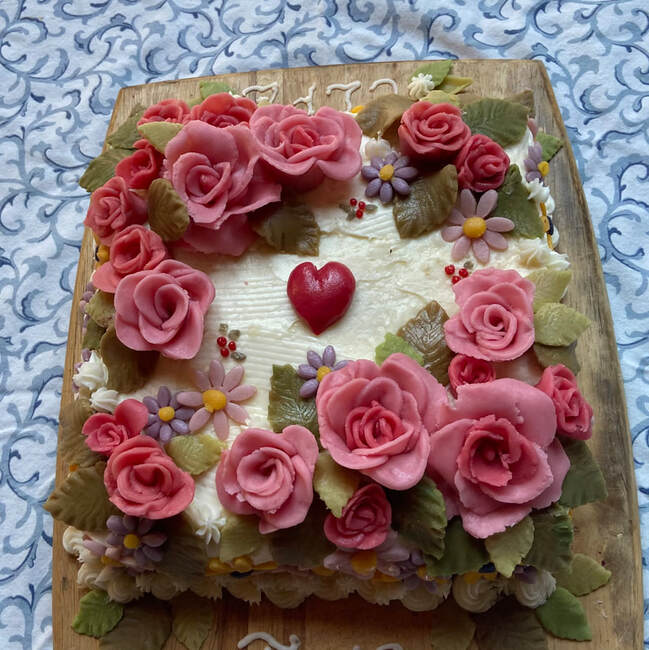 (cake decorations by Nadia Rosenthal) HAPPY BIRTHDAY RACHEL FIELD!! Rachel Field was born on September 19th, 1894. That may be part of the reason she loved the coming of fall, but I think more of it had to do with purple asters and goldenrods, meadows a-whir with cricket chorus, wild geese in V-formations on their way south, ripening apples, and the smell of wood smoke floating on the breath of a darkening evening. Her poetry and prose sang of all these things and more – leading to multiple national awards and academy award nominations. I’d like to share six archival photos with you (courtesy of the Schlesinger Library, Radcliffe Institute) which were not included in the book about Rachel’s life: The Field House: A Writer’s Life Lost and Found on an Island in Maine. They have been seen by very few living fans! In honor of Rachel’s birthday this year, can you help to give Rachel’s biography a celebratory boost? The book has surprised everyone with its successes:
Books need chatter to sustain their momentum, and what could be a better birthday gift than to share Rachel’s story with new readers? Can you think of five people who might not have heard about this uplifting story of two strong women who connect through an old house on an island in Maine? Though they never meet, these two writers, born 66 years apart, form an uncanny alliance, helping each other fulfill delayed destinies. Everyone could use a good boost right now – how about an inspiring story of perseverance under hardship, generous friendship, personal triumphs, and a bit of uncanny synchronicity with the past? Here’s what you can do:
Rachel Field gave me so many gifts. One of them was the sustained motivation over nine years to get her story back into the world. So many thanks to all of you for reading her story, and for helping me present Rachel with a few more gifts of recognition during her birthday month. Happy Birthday, Rachel! And many happy returns. Love, Robin photos below - courtesy of Schlesinger Library, Radcliffe Institute: 1. Rachel and her Scotty dog (not sure if it’s Spriggin or Trotty), in the tide pool on Sutton Island.) 2. Rachel in California, ~1938 3. Rachel and Trotty (?) in a boat off Sutton Island 4. Can anyone help me identify this young girl in Rachel’s arms? 5. Rachel, Arthur, and Hannah, California ~1940 6. Rachel on a dock on Sutton Island |
AuthorRobin Clifford Wood is an award-winning author, poet, and writing teacher. She lives in central Maine with her husband, loves to be outdoors, and enjoys ever-expanding horizons through her children, grandchildren, and granddogs. Archives
April 2024
Categories |
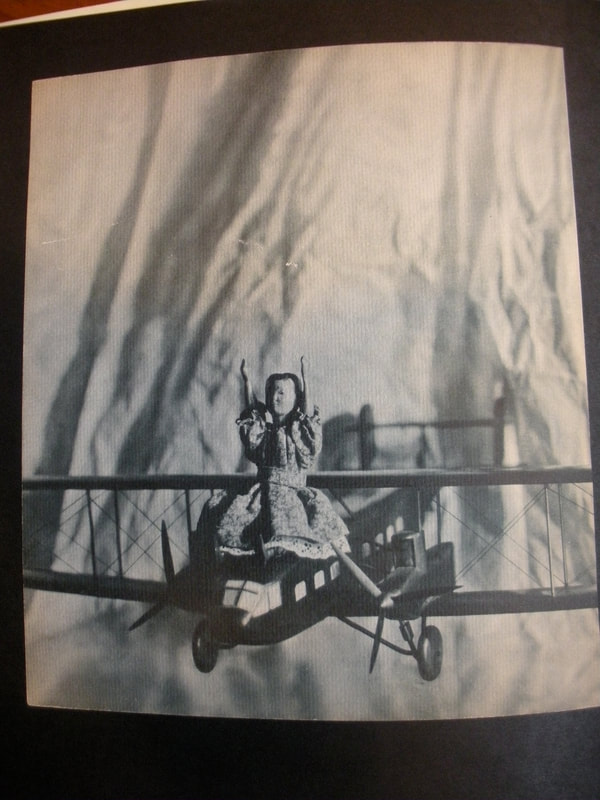
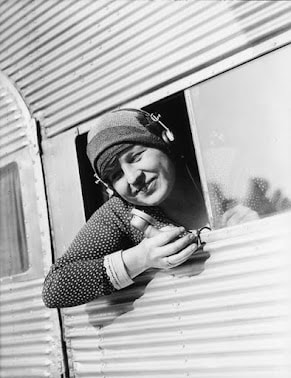
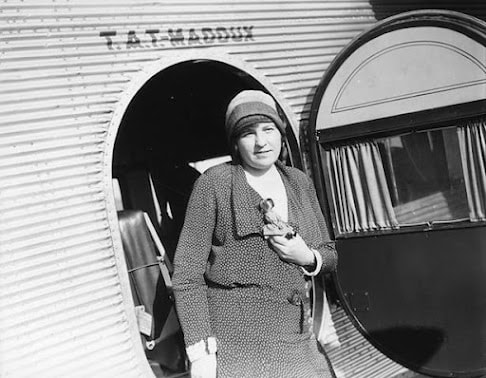
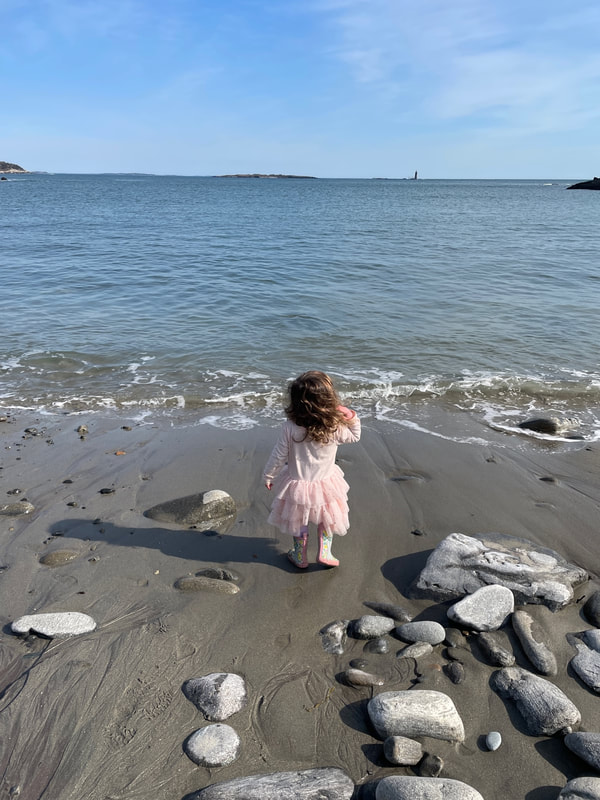
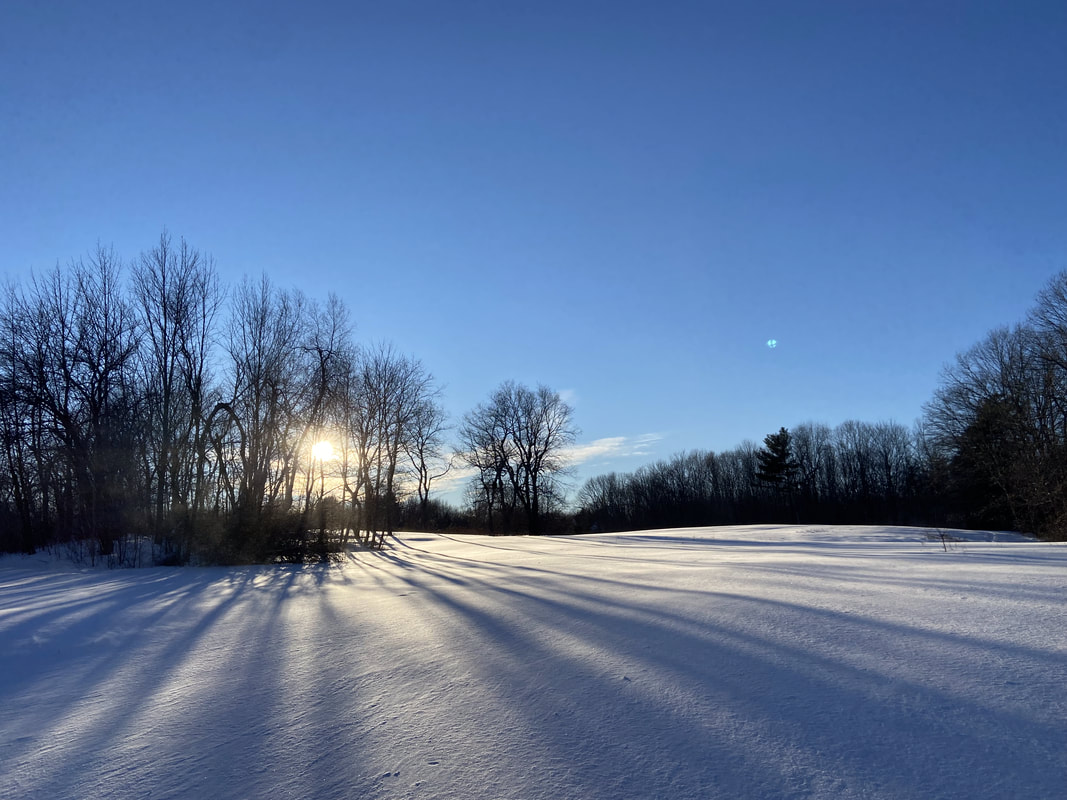
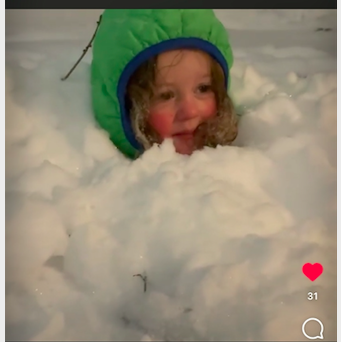
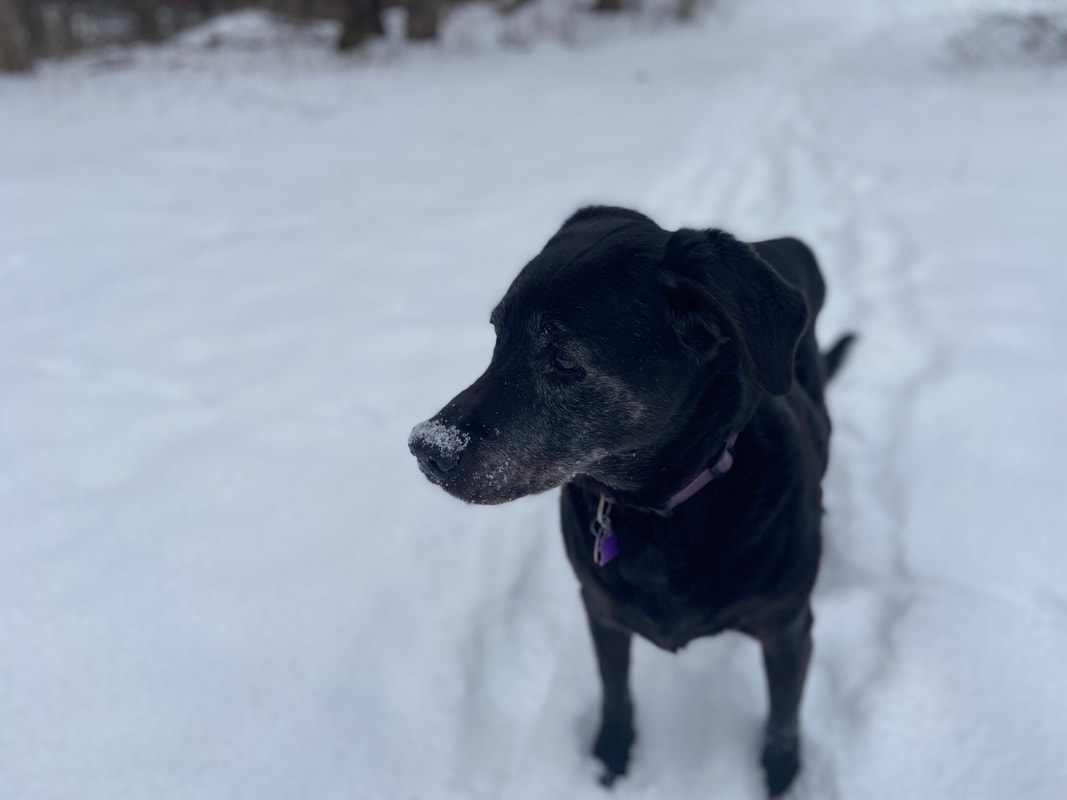
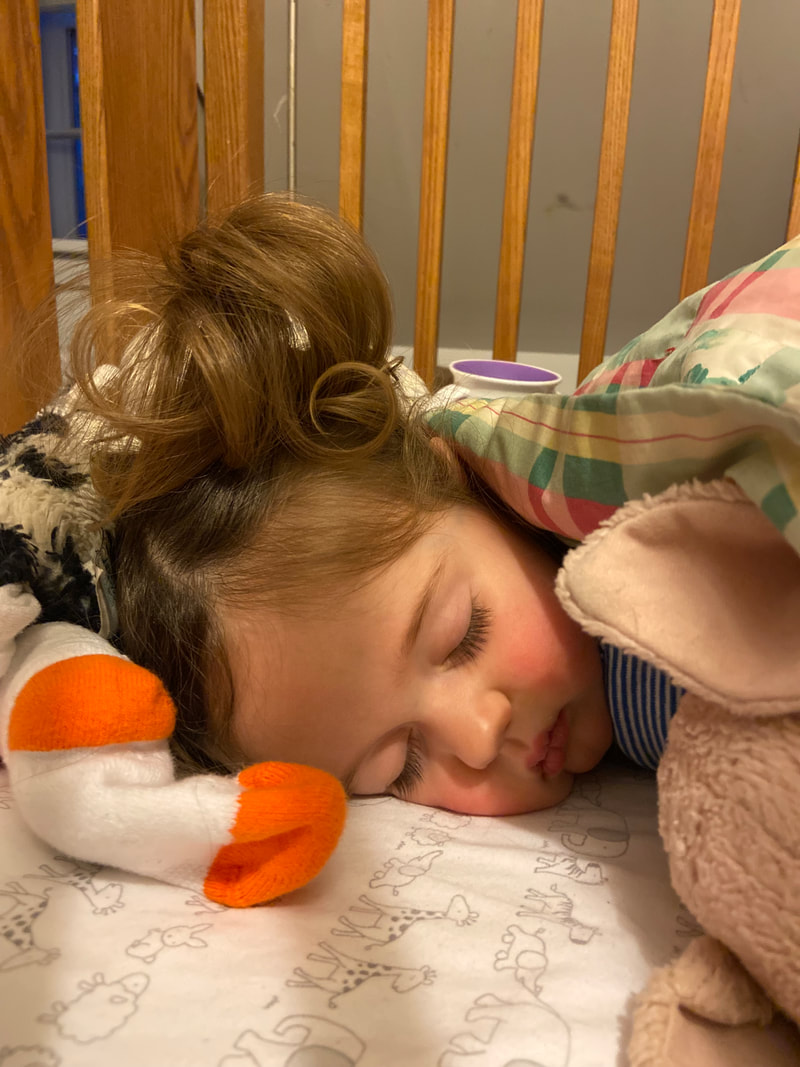
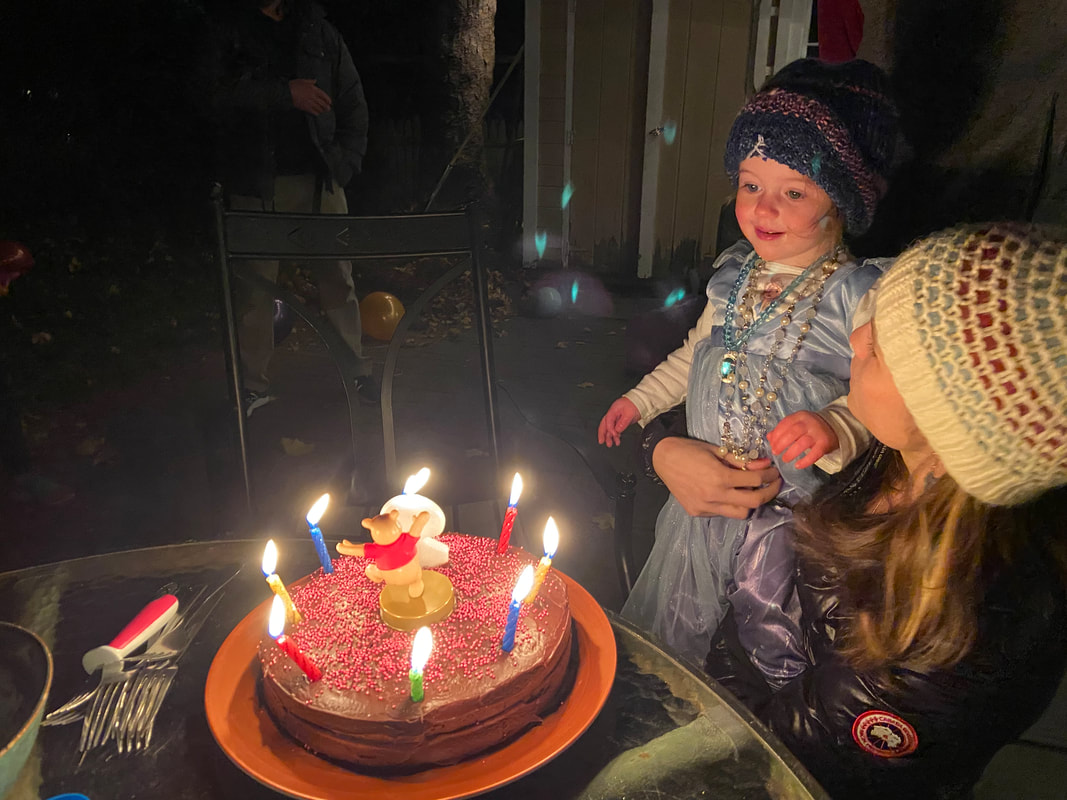
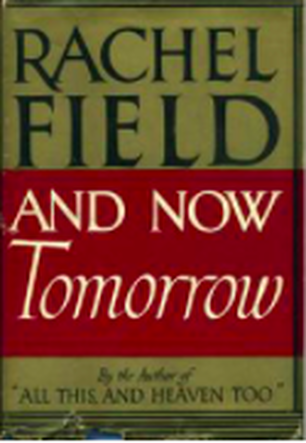
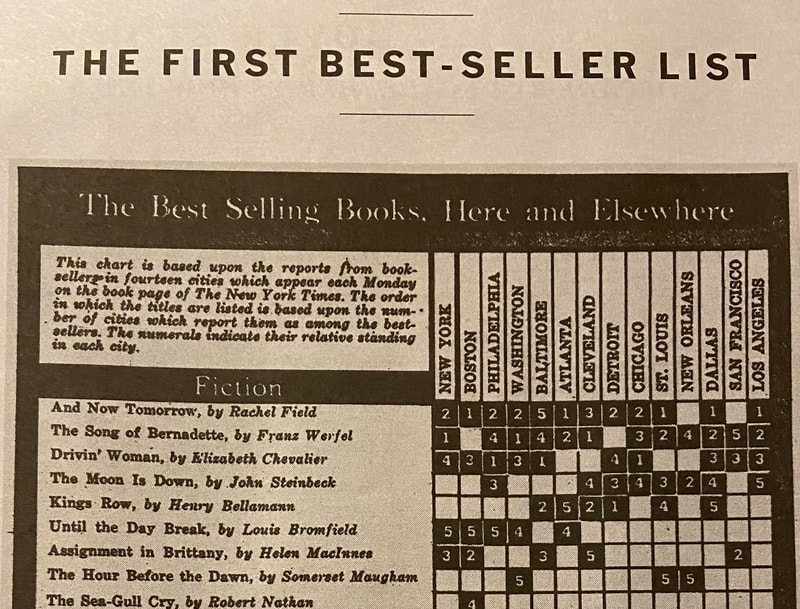
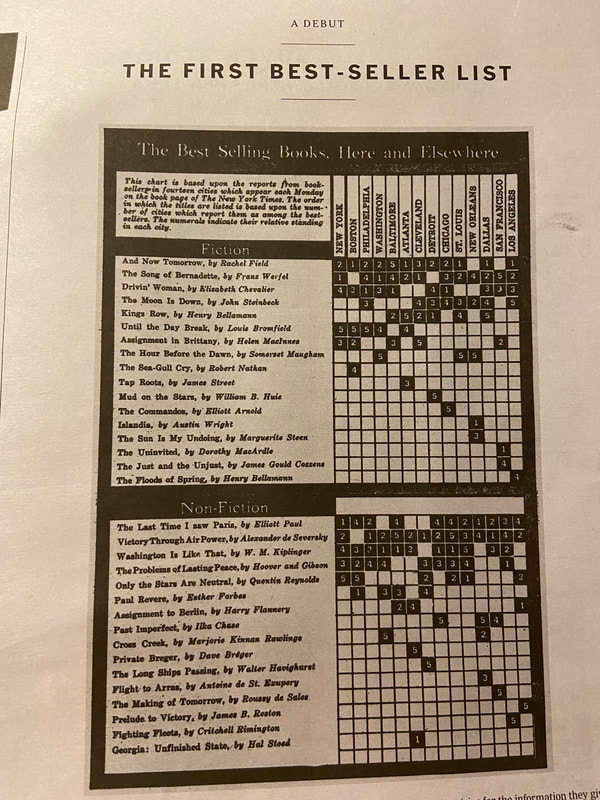
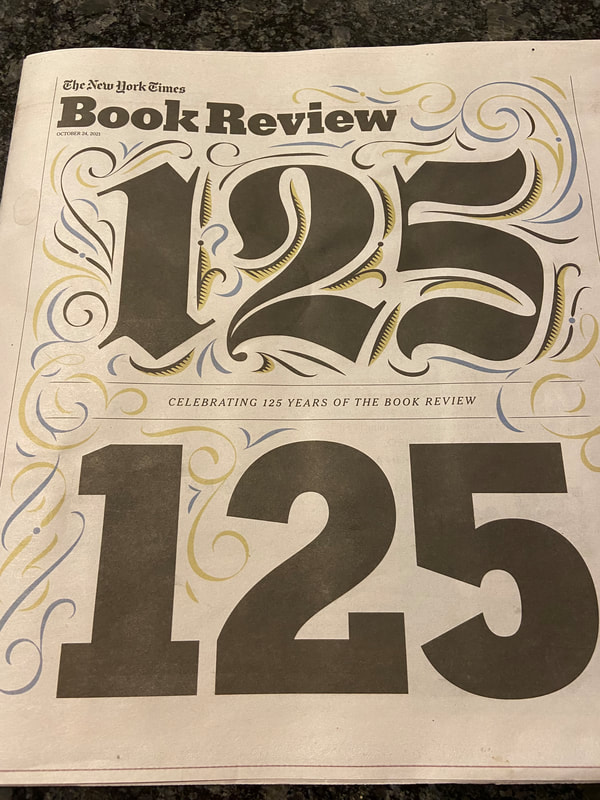
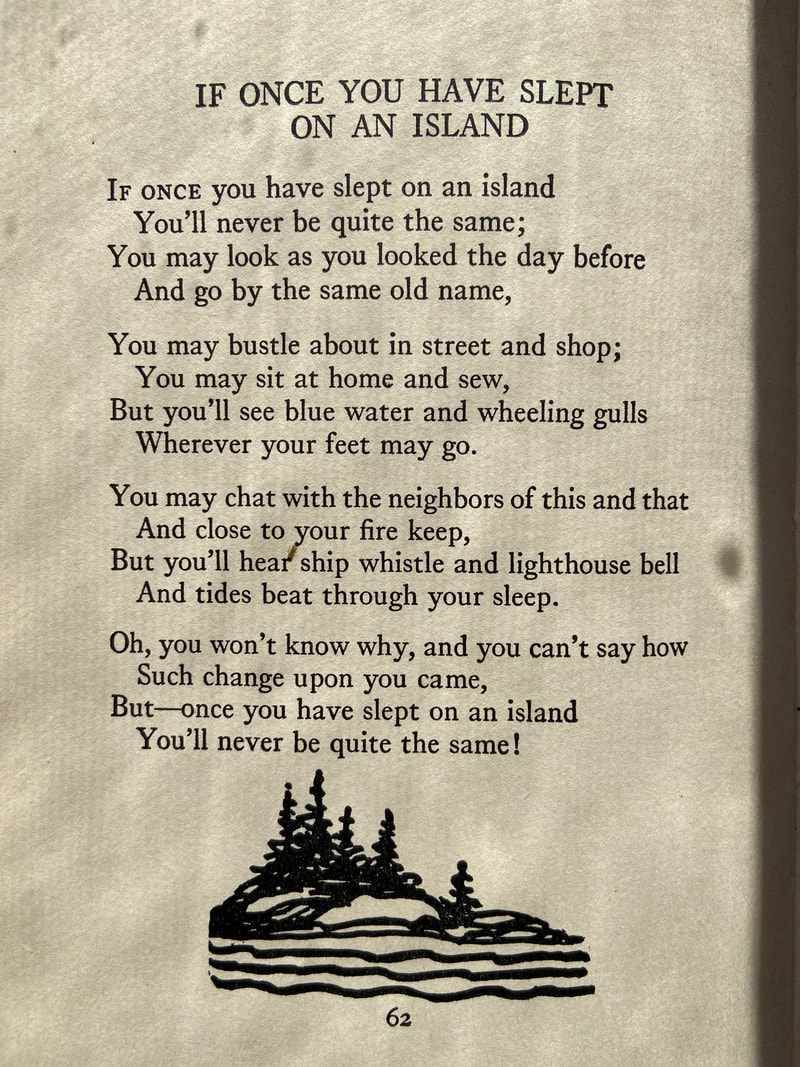
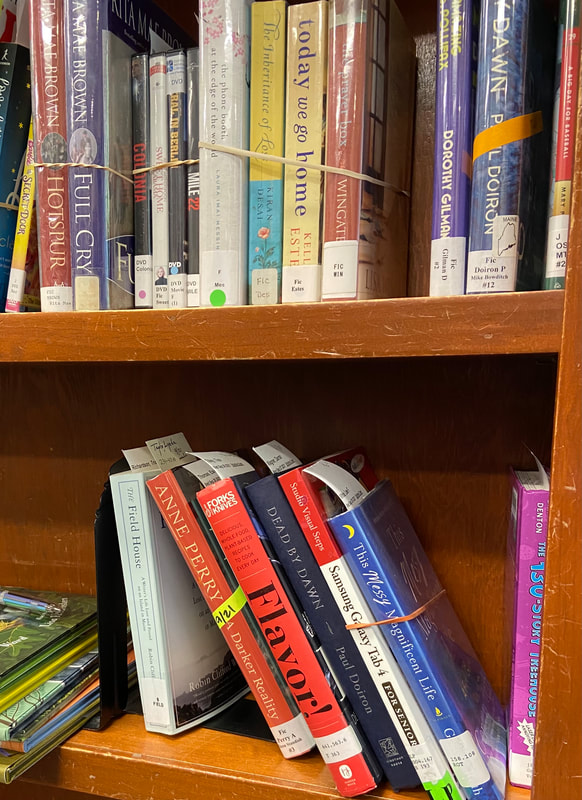
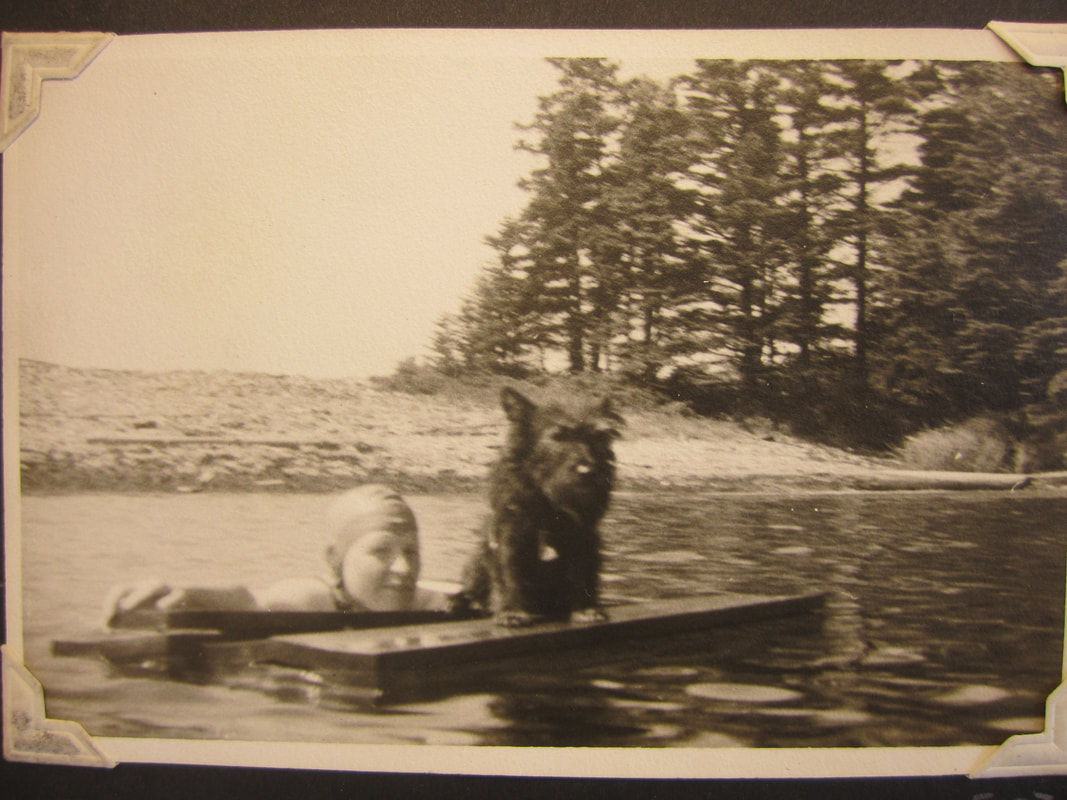
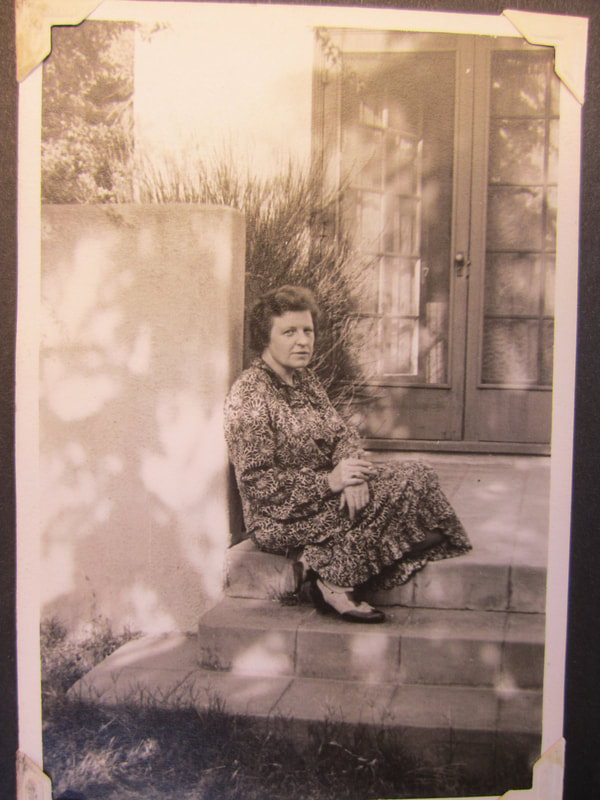
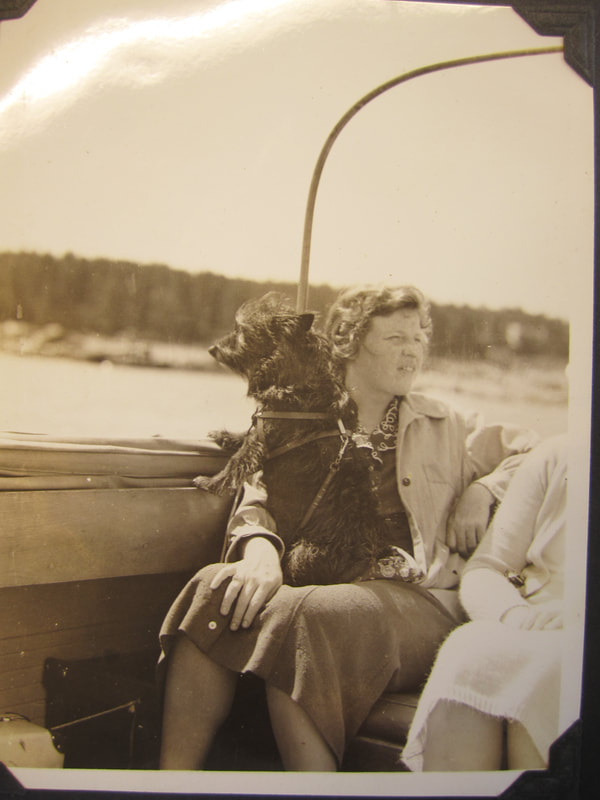
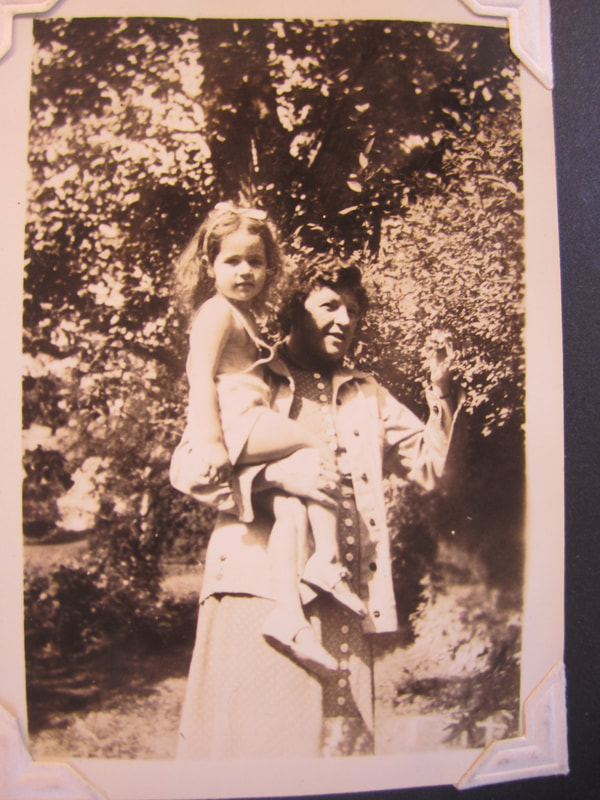
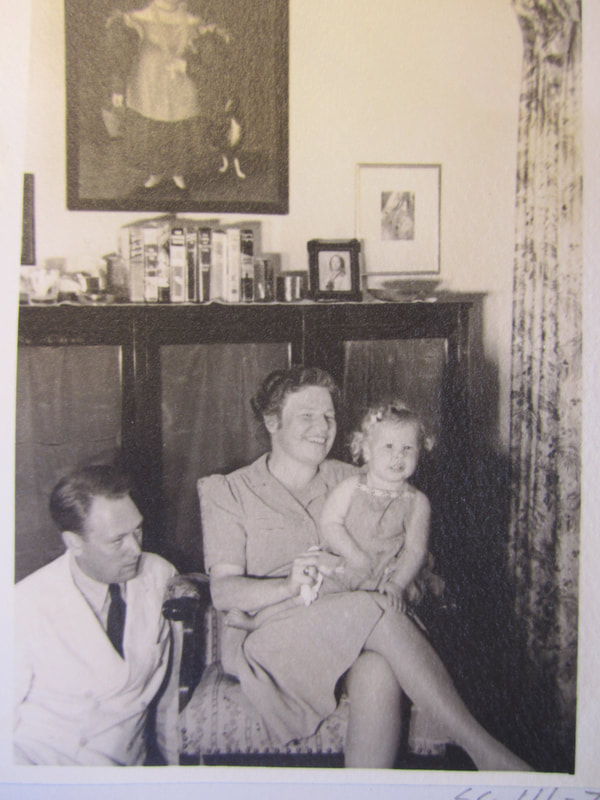
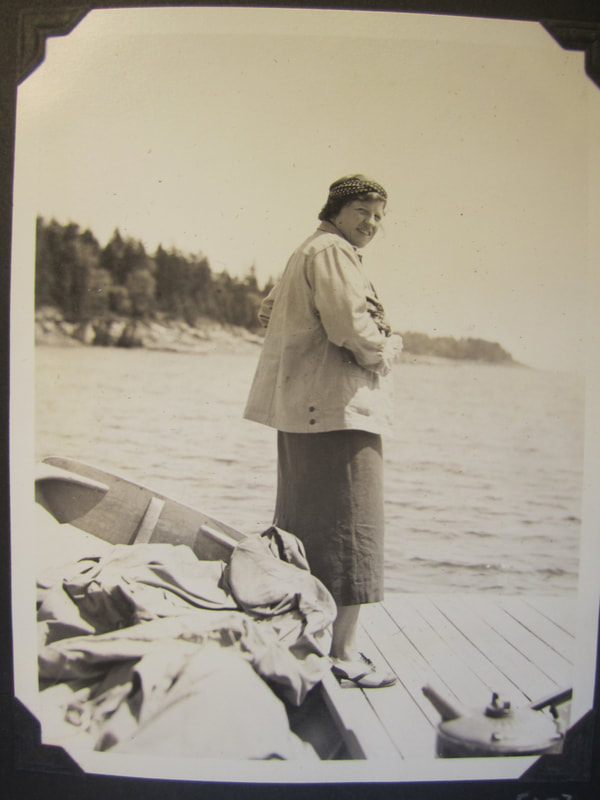
 RSS Feed
RSS Feed